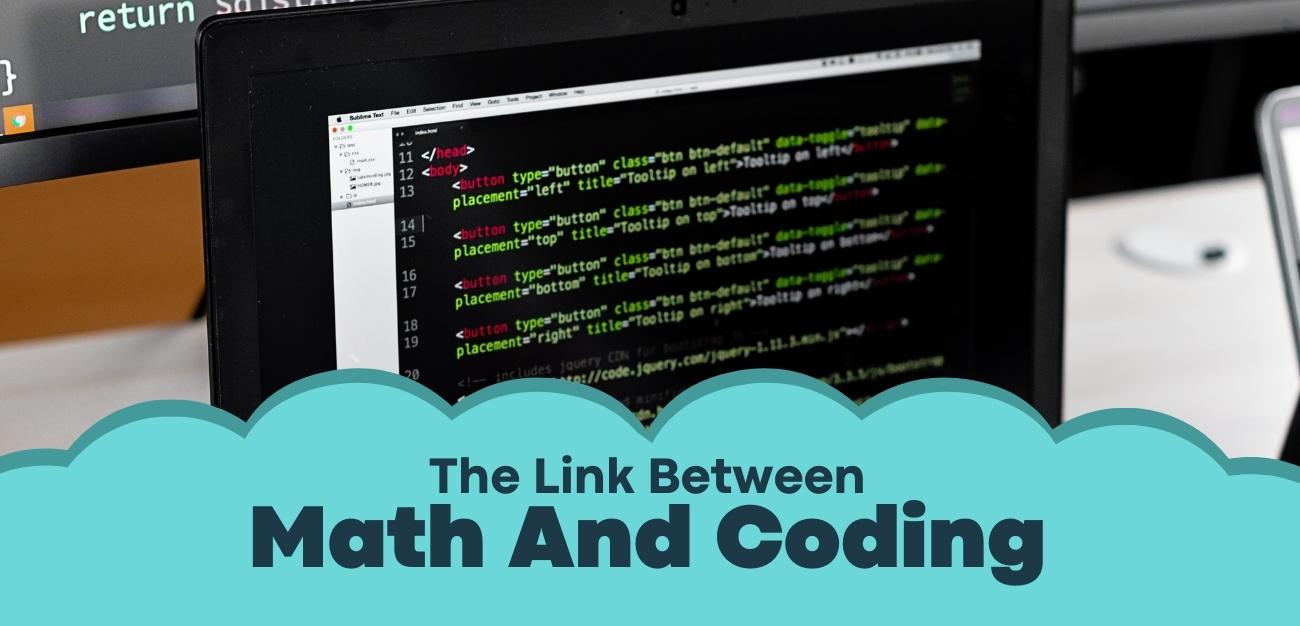Understandably, as parents, you have goals, hopes, and dreams for your children, and you want them to succeed. In today’s advanced, fast-paced world, it’s becoming increasingly important to arm our children with a diverse range of skills. One such critical skill is Coding – the language of the future. This blog post aims to shed light on the growing significance of coding and math education in steering your children toward an enriching and successful career path.
The Dawning Era of Coding
Often recognized as a “superpower” skill of the 21st century, coding has transitioned from being a niche area of expertise to a vital competency. The need for coding knowledge is not confined to cutting-edge technology firms anymore. Today, businesses across a vast array of sectors are integrating code into their operations, creating a massive demand for coding skills. So, where does mathematics fit into the grand scheme of things?
At a glance, coding and mathematics may seem like separate fields. But, the reality is that a solid foundation in mathematics equips your children to think logically, analytically, and critically. These are essential skills they’ll need when they delve into the fascinating world of coding. Therefore, facilitating an interest in math and encouraging active participation not only improves their academic prowess but also paves the way for possible careers in coding.
In the forthcoming sections of this post, we’ll delve deeper into the role of math in coding, how it’s taught, and offer math help for parents so you can better support your children if they’re encountering challenges. Embrace the journey as we unravel the intertwining worlds of math and coding, and harness these tools to equip your children for the digital future.
The World of Coding: What It’s All About
Coding, in the simplest sense, involves writing commands or instructions that are understood by computers—to create software, apps, websites, and more. The interesting part is, just like how math forms the underlying structure to countless elements in our lives, coding serves as the framework for virtually every piece of technology we interact with in today’s digital age.
As we look into the future, it’s becoming clear that coding is not just a skill set reserved for computer scientists or tech-savvy people; it’s quickly turning into a vital competency that holds immense potential in varied fields. Understanding coding can open the doors to a vast array of career opportunities, not just in traditional tech corporations, but also in industries where software and technology are used to solve real-world problems—think healthcare, entertainment, finance, and so much more.
Why Coding Is The Future
Imagine a future where coding is as fundamental as reading and arithmetic. Coding, or computer programming, is rapidly forging this reality. In an increasingly digitized world, having children fluently converse with technology isn’t just an advantage – it’s a necessity. From automation to artificial intelligence, coding languages constitute the backbone of tomorrow’s innovations.
Now, imagine your children rising above the digital tide, not just riding it. A grounding in coding could facilitate this shift, evolving them from passive consumers to active creators of technology. But how can you, as parents, grow such tech-champions? Is there a magic wand? An elixir? Maybe not. But there’s something – math.
Complex as it might sound, abstract as it might seem, math forms the core of coding. Algorithms, data structures, loops – each of these coding concepts is underpinned by mathematical principles. Think about it – if coding is the language of computers, then math is the grammar that structures it.
How Math Education Prepares Kids For Coding
Teaching math to your children lays an invaluable foundation for their potential future in coding. Understanding mathematical principles gives your child a leg on the competition, allowing them to process logic and problem-solving from an early age. This fluency in numeric language benefits them greatly when they delve into the world of coding.
Consider variables in math, such as X and Y. They are placeholders, the same kind that’s in use when coding. By equating this concept, children quickly understand and adapt to the language of coding. Furthermore, every algorithm in coding is a series of actions, much like the step-by-step process required to solve a math problem. This direct correlation between the two disciplines helps in forming a deeper understanding of how code functions.
Numerical operations like addition, subtraction, multiplication, and division play a significant role not only in basic arithmetic but also in many programming languages. More complex mathematical concepts, such as geometry and trigonometry, become crucial when your child progresses to areas like graphics and animation.
It’s important, however, to remember that children may face challenges as they navigate their way through the maze of math education. Learning to solve problems and understand mathematical concepts is not always easy. But with your support and understanding, they can overcome these obstacles. Consider aiding them with practice problems at home or even consider hiring a tutor if necessary.
Let’s not forget that everyone learns at their own pace. So, if your child is struggling for a while, it’s okay. Time, patience, and consistent aid usually resolve these initial blocks. After all, the goal is to make math and coding enjoyable, encouraging their curiosity and developing their problem-solving skills, rather than pushing for immediate perfection.
By emphasizing the importance of math education, you can open the doors of coding for your child, fostering a love of learning and preparing them for future success in a technology-driven world.
Math Concepts Used In Coding
Exposing your children to math not only sharpens their problem-solving skills, but it also sparks a numerical understanding that’s crucial in coding. In essence, the leap from math to programming isn’t too far. Here’s how basic and complex mathematical concepts relate directly to coding principles and practices:
- Arithmetic: The basic foundation of mathematics, arithmetic consisting of addition, subtraction, multiplication, and division, features prominently in coding. Algorithms often require these operations to manipulate data and produce desired outputs.
- Algebra: Variables, constants, equations – the building blocks of algebra are foundational to coding. Variables in algebra find direct application in handling data in codes; constants serve similar purposes. More complex features like equations are used in condition statements and loops in programming.
- Geometry: Spatial understanding in the form of geometry also bears a strong connection to coding, especially in fields dealing with graphics, gaming, and virtual reality. For instance, understanding coordinates or dimensions is key when creating visual elements in a digital game.
- Logic: Although not always labelled under “Math” at schools, logic is fundamentally intertwined with coding. Logical operators and conditions are the prime movers in decision-making within a program. Hence, a solid grounding in logic can effortlessly translate to good coding skills.
- Statistics: With the rise of big data, statistical understanding has become more important in coding than ever. Conceptualizing patterns, probabilities, and distributions play a significant role in coding for data science and machine learning.
These elementary mathematics concepts provide a stepping stone towards understanding complex algorithms later. The more comfortable kids are with these foundations, the easier their journey into coding becomes. The key, however, lies in encouraging a positive and curious approach towards coding and math for kids. Especially when the going gets tough, it’s vital to approach challenges as learning opportunities.
Embarking on the journey of coding requires a certain degree of mathematical proficiency. While every child’s learning pace and style may differ, gaining a good grounding in math will undeniably empower their coding trajectory. Remember, as a parent, your role is to guide, encourage, and nurture your child’s interest in this rewarding discipline.
Tips for Parents to Support Math Education for Coding
As a parent, navigating the complex world of math and coding education can seem daunting, but don’t worry, we’re here to help. Here are some genuinely practical ways you can support and nurture your child’s interest in these critical fields.
- Embrace Math at Home: Integrate math into your daily lives with practical examples. This can help children view math as a less abstract concept and make it relatable. Examples can include sorting laundry, baking, or even budgeting.
- Introduce Coding Early: There are many coding toys and games available for young children that can help spark an interest in coding. Even simple tasks like building with blocks or solving puzzles can lead to increased computational thinking.
- Encourage Mathematical Thinking: Children are naturally curious. Encourage them to solve problems and answer questions using logical reasoning and mathematical processes. This develops critical thinking skills integral to both math and coding.
- Invest in Quality Educational Resources: The right tools can play a significant role in motivating and helping your child learn effectively. Look for high-quality, engaging math and coding educational resources to support their learning process.
Remember, the most important thing is to foster an environment of enthusiasm and persistence. Learning can be hard, and your child will face setbacks – this is an inevitable part of the learning process.
Being involved in your child’s education is the best way to ensure they enjoy the journey, learn deeply, and persevere through challenges. Engage in their assignments, ask about what they learned, and show genuine interest in their projects.
And lastly, consider learning coding yourself. Not only will you understand better what your child is going through, but you will also set a powerful example about the lifelong relevance and importance of continuous learning.
A Path Towards Future Success
In conclusion, the fast-advancing world offers increasing opportunities for children equipped with the power of both mathematical and coding knowledge. As a parent, investing your time and effort in fostering and supporting their interest in these fields is nothing short of paving a path towards their future success. Remember, the journey of coding isn’t limited to any particular age group. Stepping into the world of coding yourself not only fuels your understanding, but also energizes your child’s learning spirit. After all, as navigators of their learning, our children look up to us. Let’s empower them with the gift of thriving in an era driven by mathematical precision and coding expertise.
Sign up for our resource bulletin for more information on helping your child thrive in mathematics and their future.





